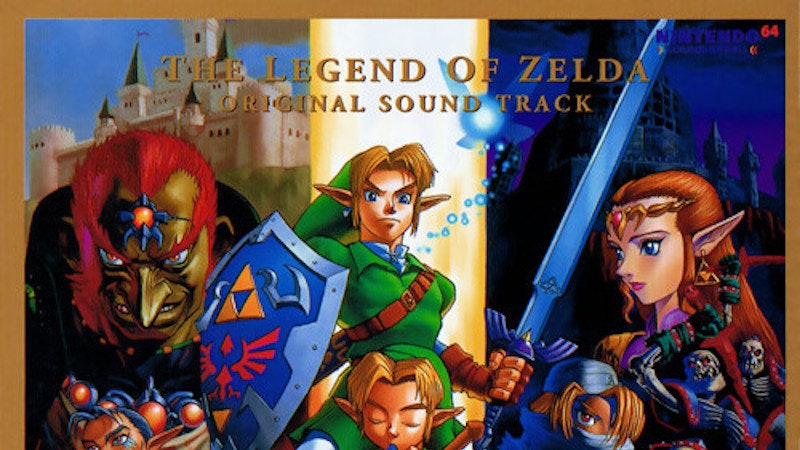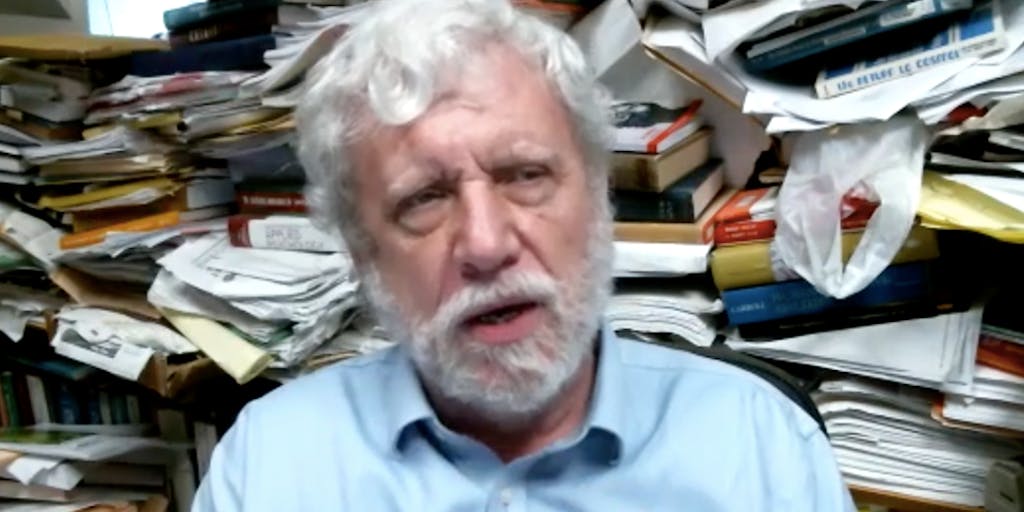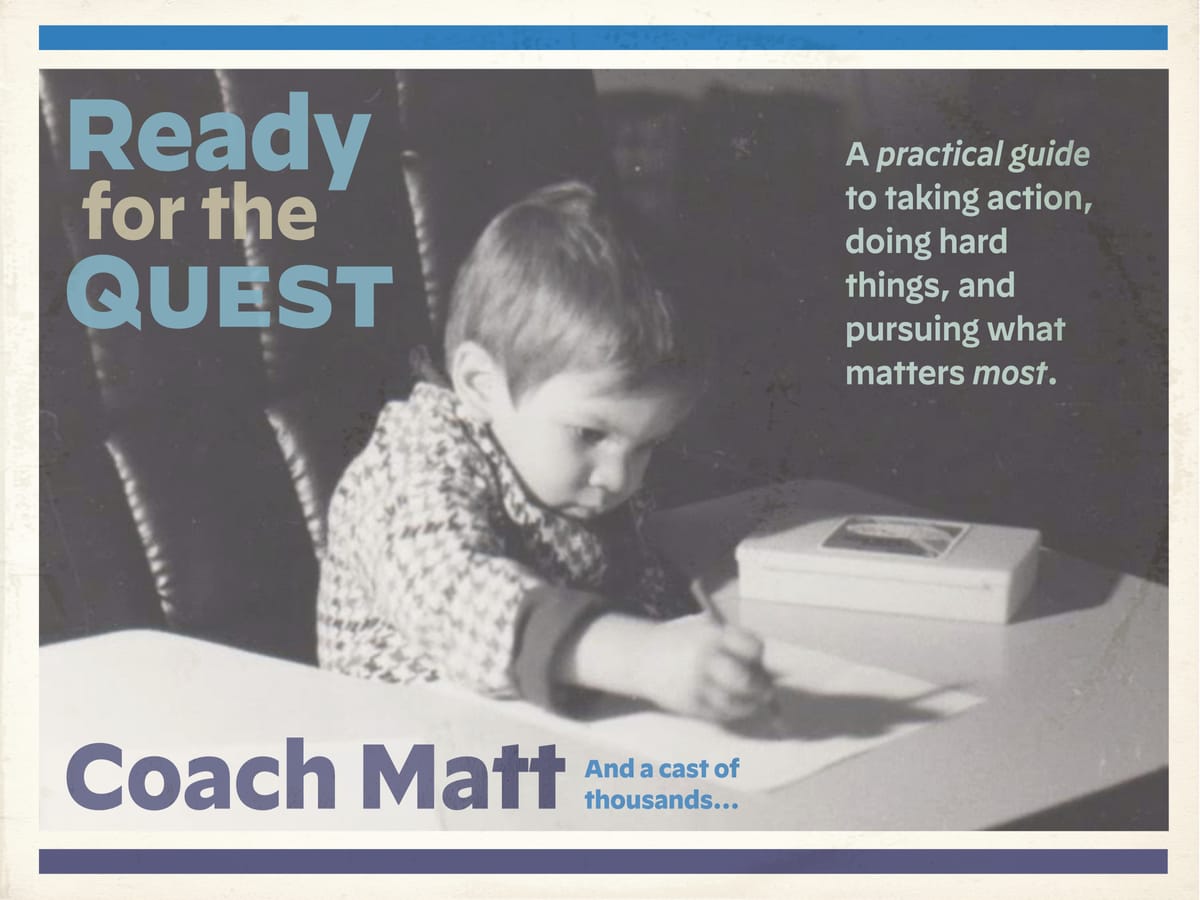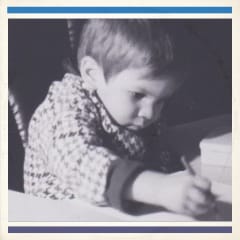Ready for the Quest
NOTES // Chapter Nine
22:13 // "Poetry can be..."
Poetry
can be
the magic
carpet
which you say
you want,
but only
if you
stand willing
to pull
that rug out
from under
your own
feet, daily.
This poem can be found in I Am Flying Into Myself: Selected Poems, 1960-2014 by Bill Knott. I love a number of the poems in this book. I also love it as a collection because Knott does so many different things with his poems. He's a serious talent, a precise writer, and does much of what you'd expect. But he also gets silly and makes poems that are mostly about the sounds of the words and he experiments with form and function and often seems to be having a lot of fun. So the book is intrguing as often as it is beautiful.
I was just thinking – maybe I should get that tattooed on my body. Maybe I'll do that as a celebration of finishing this project. I bet River would love that!
1:22 // 🎵 music
We're about to talk about The Legend of Zelda, and you're hearing some music from Ocarina of Time, the 1998 entry in the series. The music was composed by Koji Kondo.
Here's the music in context. This music is so nostalgic. It makes me happy and calm and sad.
This music is so significant that the semi-prestigious music website Pitchfork dot com wrote about it years later →

Ocarina is a beautiful, highly imperfect game, a relic from a childhood that I did not have. In 1998, I was not playing video games. I was too busy going back to college.
What's the word for being nostalgic for something you didn't actually experience in the past?
But I did have the first The Legend of Zelda game when it first arrived in the United States, in 1986. I loved it. It was all about exploration – venturing into the unknown, with few instructions and little direction. Years later, they made another Zelda game – Breath of the Wild – which recaptured that open-ended experience, and it brought me back to the series.
Here's a video about the music of Breath of the Wild. I watched this video several times, even before I had played the game. It's really wonderful.
4:52 // "There's no more miserable..."
That's Brant Jones, quoting William James. I think I heard William James say on a Tim Ferriss podcast. (jk 🤣)
5:01 // "The only thing more difficult..."
That's Shanelle Marie quoting Steven Kotler, from The Art of Impossible.
6:54 // "You do not rise to the level of your goals..."
That's Elena M. Perantoni reading from Atomic Habits, by James Clear. We've mentioned Clear before, because he keeps posting great quotations in his newsletter.
7:42 // "We turn to these metaphors because..."
Here's Artie Isaac himself, reading from The Artist's Way, by Julia Cameron.
This book is one that I return to periodically. Often in times of transition. I first read it in college, and I found it very comforting. It was the first book that spoke directly to me as an artist, and said, "No, there's not something wrong with you – what you're feeling is what it's like to be an artist."
8:06 // "Here are some examples of what a practice looks like..."
The practicers, in order, are: David J. Glover, Michelle Schroeder Lowrey, Eleni Papaleonardos, Jordan Fehr, Elena M. Perantoni, and Blythe Coons.
9:17 // "Practice doesn't make perfect..."
That's me! I'm reading a quotation from The Talent Code, by Daniel Coyle.
10:31 // "The key to achievement in any field, according to..."
11:12 // "It simplifies your day..."
Here's a John Kabat-Zinn quotation that didn't quite make the cut →
One of the principal virtues of a daily discipline is an acquired transparency to the appeals of transitory mood states. A commitment to getting up early to meditate becomes independent of wanting or not wanting to do so on any particular morning. The practice calls us to a higher standard.
11:59 // "When the abbot strikes the chime..."
That's the articulate Acacia Duncan reading from Turning Pro, by Steven Pressfield. It's another short book, like The War of Art, and sometimes I like it even better.
12:33 // "You measure your success..."
"Measures of success" is an term I first read in William Ball's 1984 book, A Sense of Direction.
14:22 // "It hasn't always been smooth sailing..."
This is my neighbor, Rudy Frias, reading from The Mutt: How to Skateboard and Not Kill Yourself, which is Rodney Mullen's autobiography, written with Sean Mortimer.
You remember Rodney Mullen, right?
15:02 // "Dr. Angela Duckworth... spent a lot of time studying the spelling bee kids..."
Angela Duckworth wrote the book Grit: The Power of Passion and Perseverance, which is where I read about "deliberate practice," as K. Anders Ericson calls it.
These are the spelling bee kids. Amazing!
16:01 // "10 Years / 10,000 hours..."
If you didn't read about it in Gladwell's book Outliers, you can brush up on it here →

16:43 // "Seth Godin talks about UCLA professor Robert Bjork..."
Robert Bjork coined the term "desirable difficulties" in 1994. He has published (mostly with Elizabeth L. Bjork) a number of chapters and papers on this and related topics.
In 2020, they revisited the topic in "Desirable difficulties in theory and practice" for the Journal of Applied Research in Memory and Cognition. Here's a particularly juicy nugget.
In talking to various audiences over the years, we have often been asked whether we have written some kind of manual on how to incorporate desirable difficulties into one's teaching or self-regulated learning. That question has made us to realize that we have been prone to assuming, unrealistically, that simply telling learners and teachers about relevant research findings is enough. In their contribution, Biwer, De Bruin, Schreurs, and oude Egbrink (2020) discuss their impressive effort to implement a "study smart" program... The challenges Biwer et al. have confronted are as informative as the successes they have achieved. Among those challenges is that learners bring with them "naïve theories" about learning strategies that need to be "debunked."
That's worth thinking about if you find yourself naturally resistance to the discomfort of "desirable difficulty."
16:57 // "Consider two kinds of batting practice..."
That's River Caelum reading from The Practice, by Seth Godin.
18:03 // "I also think about Brazilian Jiu-Jitsu..."
If you're wondering about Brazilian Jiu-Jitsu, you could just read this Wikipedia article. Or you could go diving on YouTube. You might comes across this document of what at least a few people consider The Greatest BJJ Performance in History.
18:15 // "I'm reminded of the Suzuki Method of Actor Training..."
From the SITI Company's website:
Developed by internationally acclaimed director Tadashi Suzuki and the Suzuki Company of Toga, the Suzuki Method’s principle concern is with restoring the wholeness of the human body to the theatrical context and uncovering the actor’s innate expressive abilities.
Watch this video to see some examples of the training. Unless you've done it before, I bet it's not what you're expecting.
19:54 // "... so you make a sketchbook diary..."
Starting in 1998, James Kochalka drew a short (usually four panels) cartoon, and posted it online, everyday for fourteen years. I loved this work. It appears that he took the website down, but, thankfully, Top Shelf has collected the whole thing.
20:09 // "Pick something that you love and do it like a bad habit..."
Well, it was me who said that, in The Absurdity of Writing Poetry. I was probably quoting someone else, but I can't remember who.
20:56 // "I want the daily challenge of clarity and articulation..."
That's me quoting from Anne Bogart's A Director Prepares, again.
21:00 // "He's not just a weight-lifter..."
The speakers, in order, are:
- Artie Isaac
- Jaylene Jennings
- Dakota Thorn
- John Jardin
22:14 // "How we spend our days..."
That's Brant Jones reading from Annie Dillard's classic The Writing Life.
I read that book in Iowa City. I found it on one of Jennifer Fawcett's bookshelves. Thanks, Jen.



